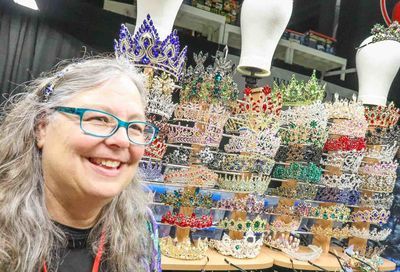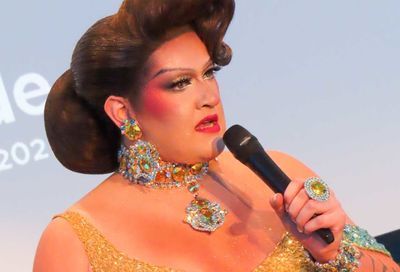Legacy of Liberty
RHP honors new group of local GLBT ''Pioneers''
As the late writer and children’s advocate Pearl S. Buck put it, “One faces the future with one’s past.” It’s a sentiment that runs through all the work of the Rainbow History Project, the nine-year-old organization that preserves and promotes the history of the D.C. area’s “sexually diverse communities.” Come Oct. 21, that sentiment will again be emphasized as RHP celebrates the group’s fourth cohort of “Community Pioneers” with a reception.
“One of the reasons we started [the Pioneers] was because a lot of people had not received recognition formally,” says RHP’s current chair and founder, Mark Meinke, granting that many of the Pioneers have been lauded previously. Still, he adds, “It’s a chance for us to catch up. And there are always new people coming along.”
This year, RHP has settled on 20 Pioneers, a number Meinke says will likely hold firm, with RHP celebrating Pioneers biennially.
Toni Collins, board chair of Transgender Health Empowerment, a local group she help found in 1996, is among this year’s Pioneers. She also accepted an invitation to join RHP’s community advisory board.
“Oftentimes, we have so many great ideas and we don’t record how things were started, how groups were formed,” Collins says, praising RHP for its work to change that. As with other Pioneers, Collins has submitted an oral history for RHP’s archive.
Patsy Lynch, herself a Pioneer and a member of RHP’s board, also takes photo portraits of most pioneers. Those portraits hang at the U Street area Busboys and Poets through October. Rick Rosendall, whose “Center Field” column runs in Metro Weekly, met with Lynch about a month ago for both his portrait and oral history.
“You sort of race through about 30 years,” Rosendall says of the experience, offering his story of bringing Frank Kameny — a gay pioneer in every sense of the word — to his campus, Villanova University, to speak in 1978, despite resistance.
“That stirred a lot of controversy because the university is run by Augustinians. The dean of students didn’t want the ‘devil’ on his campus. … I was able to outmaneuver him.”
Valerie Papaya Mann, a 2009 pioneer, but a past RHP board member, has also given an oral history that spans decades. Through those years, however, Mann has seen more recognition for her HIV/AIDS work than for GLBT activism, making the Pioneer honor that much sweeter.
“I’m particularly excited about the award from the Rainbow History Project,” she says, pointing to its GLBT significance. “I’m also excited about the award because I believe the Rainbow History Project plays a vital role. If we allow others to write our history, it’s often revisionist. In too many communities, we are not preserving our history.”
Randy Shulman, a founder of Metro Weekly and today its editor-in-chief and co-publisher, has also had a hand in preserving local GLBT history, at least for the past 15 years of the magazine, making him a Pioneer, too.
“I’m being honored for something I love to do,” he says. “It’s an extraordinary honor to be included when I look over this list, to be thought of as someone whose own personal history is relevant to the greater gay history in D.C.”
Joining these four as RHP’s 2009 Community Pioneers are: Vic Basile, Councilmember David Catania (I-At large), Lou Chibbaro Jr., James Crutchfield, Mindy Daniels, Pat Hawkins, Dr. Theo Hodge Jr., Loraine Hutchins, Philip Pannell, Michelle Parkerson and Nancy Tucker. Named posthumously were Melvin Boozer, Essex Hemphill, Jack Nichols, Cheryl Spector and Jim Zais.
The Rainbow History Project offers a Community Pioneers Reception Wednesday, Oct. 21, at 6 p.m., in the Langston Room of Busboys and Poets, 2021 14th St. NW. For more information, call 202-821-7532 or visit www.rainbowhistory.org.
Support Metro Weekly’s Journalism
These are challenging times for news organizations. And yet it’s crucial we stay active and provide vital resources and information to both our local readers and the world. So won’t you please take a moment and consider supporting Metro Weekly with a membership? For as little as $5 a month, you can help ensure Metro Weekly magazine and MetroWeekly.com remain free, viable resources as we provide the best, most diverse, culturally-resonant LGBTQ coverage in both the D.C. region and around the world. Memberships come with exclusive perks and discounts, your own personal digital delivery of each week’s magazine (and an archive), access to our Member's Lounge when it launches this fall, and exclusive members-only items like Metro Weekly Membership Mugs and Tote Bags! Check out all our membership levels here and please join us today!





















